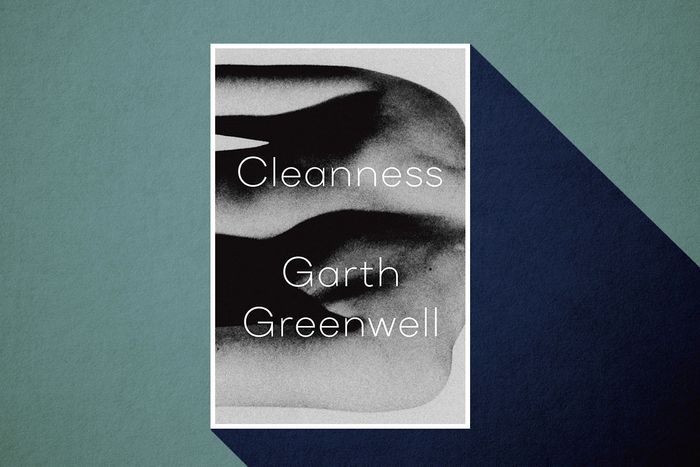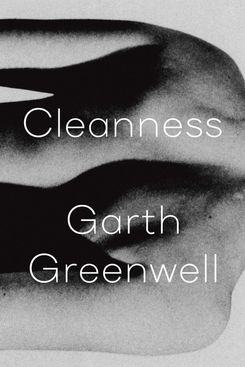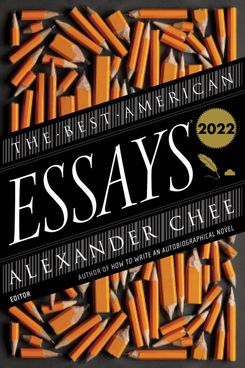
Alexander Chee has spent his career writing about the complicated role sex plays in our lives — a source of shame and desire, harm and restoration, disappointment and profundity. And though one might try to divide his writing into two separate camps — the literary and the erotic — Chee believes the erotic holds a vital role in his work as a literary writer.
While the divide between the literary and the erotic is not arbitrary, the chasm between them isn’t as broad as some may assume. And Chee’s selection, an excerpt of the story “The Frog King” from Garth Greenwell’s 2020 novel Cleanness, is a stunning example of how literature can deploy the tactics of erotic writing. In this scene, the narrator and his lover are on vacation, free from the scrutiny of friends and family who might disapprove of their relationship. They are anonymous, kissing at a bus stop, where the narrator worries they are too visible — until it occurs to him that visibility is the point. His lover longs for the very exposure they can’t achieve anywhere else. It is a startling moment of exposure, both external and internal, as the narrator learns he might like an audience as much as his lover does.
This kind of self-revelation is what Chee admires in great sex writing — and all writing. You can read the excerpt below, followed by Chee’s thoughts on it.
The excerpt from “The Frog King”:
“I remembered this later, waiting for the bus that would take us to town. We were the only people in the little shelter at the stop, huddling together against the wind, which was sharper than I had expected; it wasn’t very cold but it was cold enough for our coats, for the scarves we had draped around each other before heading out. Then R. stepped up onto the bench, he grabbed my shoulders and turned me to face him. Now I’m the taller one, he said, and bent down to kiss me, not a chaste kiss, he gripped my hair and tilted my head farther back to probe my mouth with his tongue. I tried to pull away, laughing: it was a busy road, we were in full view of the passing cars. But he held me tight, kissing me with urgency, until I realized that exposure was the point, that he wanted to show off, here where nobody knew him, where he could be anonymous and free, could live out an ideal of candor. He leaned into me, pressing his pelvis into my stomach so that I felt his cock hard between us; it turned him on to show off like this, I had had no idea. I gripped him, using my body to shield us, I gripped him hard with both my hands through his jeans. I started to undo his belt, wanting to meet him in his daring, to show him I was game; and he moaned into my mouth before he pulled back and pushed my hand away. Porta-te bem, he said, slapping my face lightly and laughing, behave.”
Greenwell wrote this piece in an attempt to write about happiness — it’s a really interesting exercise. And I was drawn to the focus on joy throughout the story. The thing about queer sex is that it really is a revolution based in the body’s pleasures. Your body experiences a truth that goes against what the culture has told you is possible or desirable — so you are both magnetized to it and afraid of it. Writing about sex is a way of writing about how people come to grips with who they are and how they communicate. Because sex is communication. And so in many ways, when you include sex in a story, it’s like including dialogue or gesture. It’s a combination of those things as well as more than those things.
In this scene, the narrator and his boyfriend are worried about being seen kissing each other in public. But it soon becomes clear to the narrator that exposure is the point. So there are multiple forms of self-revelation — you are showing yourself to a lover as well as to the world. The narrator is discovering that his lover has a kink for exhibitionism, and the narrator might share it. He might, as Greenwell puts it, want to meet that daring.
There’s a tumbling quality to how this scene is written. The moment is broken into its component parts, but it’s also felt in the body. One of the things I really appreciate about Greenwell’s writing is his focus on bodies. What are the bodies doing? Why are they doing it? So much contemporary writing is bodyless. But he’s taking us into the granular moments of the kiss, to the center of it, kindling his own excitement and the lover’s excitement, and it turns it into something we didn’t expect.
As the kiss begins, you don’t know where it’s going to go. The moment goes a little further than a bus-stop kiss is expected to go. There’s a playfulness to it. When they have sex later in the story, it mirrors this scene, the same phrases are used — but by the narrator instead of the lover. This time, they can be themselves. There’s no sense of being on display for an audience.
The inclusion of sex in literature is about including the full range of experiences, just as the inclusion of joy is. There’s been a lot of talk about how we write about trauma and pain in contemporary writing, and it seems to emerge from an approach toward pain that was very common when I was a writing student in the ’80s and ’90s. It was assumed that pain was material. If something bad happened to you, the response was, “Well, congratulations on your material.” But if it was too bad, then you could be accused of exploiting your pain. We talked about pain easily. But no one ever told me how to write about joy, as Greenwell is doing.
I was a part of a group of writers when I debuted who were seen as being particularly bold about the inclusion of sex in their work, queer writers. My first novel has a great deal of sex in it. At the time, it was not trying to think, Why did I include it? What was I doing? What did I think I was doing? As an artist, you’re thinking about all of these different issues pushing and pulling on you. I think I was trying to write about the ways sex can recuperate. The way sex can return you to your body after sexual violence. The way sex is like making a map of the self; each time you have it, you are learning a little more about being alive.



